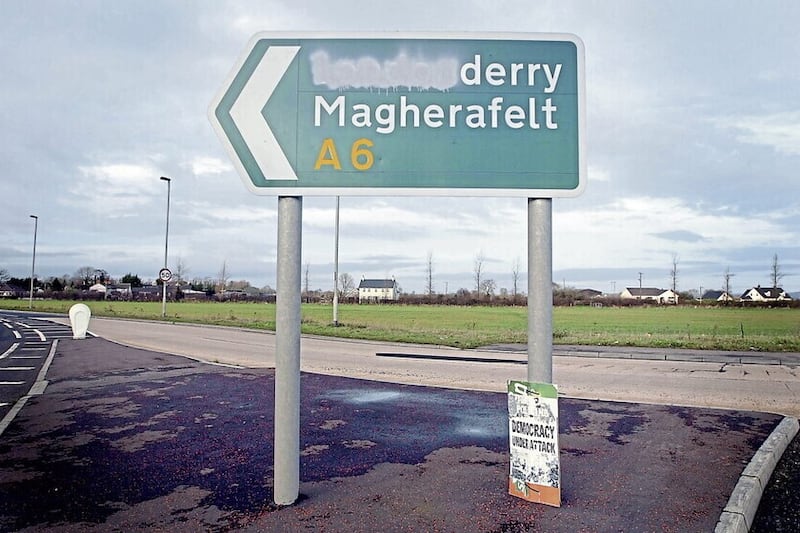A former Stormont minister who approved the extension of a Co Tyrone goldmine may have been "misinformed or confused" about the scale of the plans, the High Court has heard.
Mark H Durkan's decision to grant planning permission for underground work at Cavanacaw near Omagh is under challenge from a local man.
William Donnelly is seeking to judicially review the former Department of the Environment, alleging that it breached regulations in giving the green light to the project in 2015.
In a wide-ranging attack, he contended that retrospective permission was granted for the removal of waste rock without an adequate environmental impact assessment.
But counsel for the department countered by insisting work was already covered by previous planning approval obtained more than 20 years ago.
Mining has been carried out at the site by Omagh Minerals, a subsidiary of Galantas Gold Corporation.
The plans under challenge involve underground work at the existing mine, with planning permission granted on the basis of compliance with strict environmental conditions.
At the time Mr Durkan said these would include progressive restoration of the above ground site to ensure the protection and enhancement of habitat over time.
But Mr Donnelly has claimed there was an unauthorised removal of large quantities of rock.
Part of his case centres on the environmental impact and possible acidity of this waste rock.
In court yesterday points were also raised about the size of the site being either 60 hectares or 81 hectares.
According to Mr Donnelly that raised the possibility that the SDLP minister was "misinformed or even confused as to the scale of the project being approved".
His legal challenge is being resisted on a number of grounds, including an alleged failure to raise objections within the time limits.
The department's lawyers also insisted that no regulations were breached during the decision-making process.
Referring to the removal of rock from the site, Tim Mould QC told Madam Justice McBride: "Once it was made aware of that the department took up the cudgels and exercised it's enforcement powers to as to require the activity to cease, and it ceased."
Mr Mould stressed that part of the construction work under scrutiny was given the green light under a previous planning decision back in 1995.
Referring to settlement lagoons, he added: "By the time we get to 2015 there was nothing for the planning permission to approve or authorise, it had been authorised."
The case continues.








